
Senior physics writer Emily Conover joined Science News in 2016. She has a Ph.D. in physics from the University of Chicago, where she studied the weird ways of neutrinos, tiny elementary particles that can zip straight through the Earth. She got her first taste of science writing as a AAAS Mass Media Fellow for the Milwaukee Journal Sentinel. She has previously written for Science Magazine and the American Physical Society. She is a two-time winner of the D.C. Science Writers’ Association Newsbrief award, and a winner of the Acoustical Society of America’s Science Communication Award.

Trustworthy journalism comes at a price.
Scientists and journalists share a core belief in questioning, observing and verifying to reach the truth. Science News reports on crucial research and discovery across science disciplines. We need your financial support to make it happen – every contribution makes a difference.
All Stories by Emily Conover
-
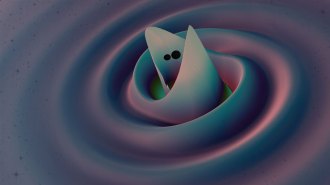 Physics
PhysicsRecord-breaking gravitational waves reveal that midsize black holes do exist
The biggest merger of two black holes so far raises questions about how the pair of objects came to be.
-
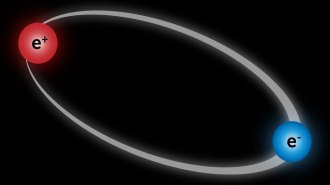 Quantum Physics
Quantum PhysicsA measurement of positronium’s energy levels confounds scientists
A gap in the energy levels of positronium seems to be substantially larger than predicted, and physicists don’t know why.
-
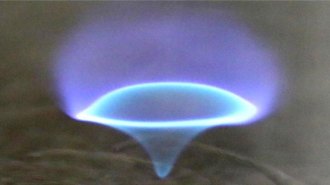 Physics
PhysicsFour types of flames join forces to make this eerie ‘blue whirl’
Pinning down the structure of the “amazingly complex” blaze could help scientists control it.
-
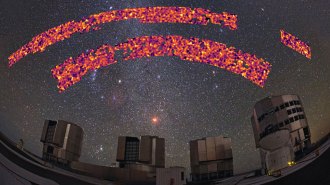 Cosmology
CosmologyScientists can’t agree on how clumpy the universe is
A measurement of 21 million galaxies finds a level of clumpiness that disagrees with estimates based on the oldest light in the universe.
-
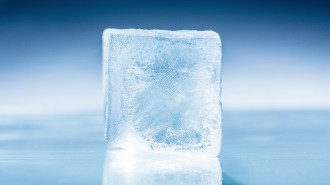 Physics
PhysicsA new experiment hints at how hot water can freeze faster than cold
A study of tiny glass beads suggests that the Mpemba effect is real.
-
 Astronomy
Astronomy50 years ago, Mauna Kea opened for astronomy. Controversy continues
Current plans to build a new telescope on the volcano sparked the latest conflict.
-
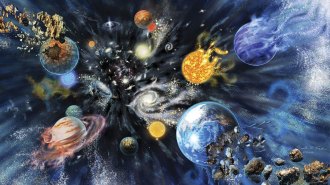 Cosmology
Cosmology‘The End of Everything’ explores the ways the universe could perish
As Katie Mack explains in The End of Everything, the universe’s demise could be disastrously violent or deadly calm.
-
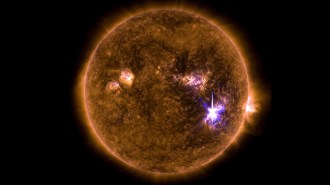 Physics
PhysicsThe physics of solar flares could help scientists predict imminent outbursts
Physicists aim to improve space weather predictions by studying the physical processes that spark a solar flare.
-
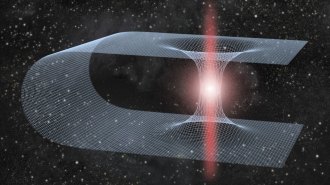 Physics
PhysicsA black hole circling a wormhole would emit weird gravitational waves
A new calculation reveals the strange gravitational waves LIGO and Virgo could see if a black hole were falling into a hypothetical tunnel in spacetime.
-
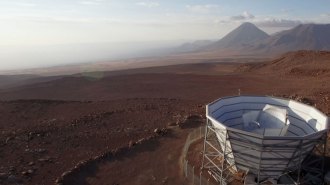 Cosmology
CosmologyDespite a new measurement, the debate over the universe’s expansion rages on
The Atacama Cosmology Telescope finds the universe is expanding more slowly than supernova observations suggest.
-
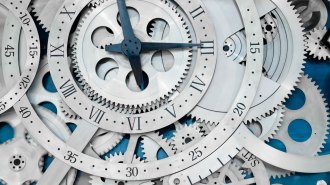 Physics
PhysicsThe universe might have a fundamental clock that ticks very, very fast
A theoretical study could help physicists searching for a theory of quantum gravity.
-
 Physics
PhysicsPhysicists have ‘braided’ strange quasiparticles called anyons
All known particles fall into two classes. Physicists just found new evidence of a third class in 2-D materials.